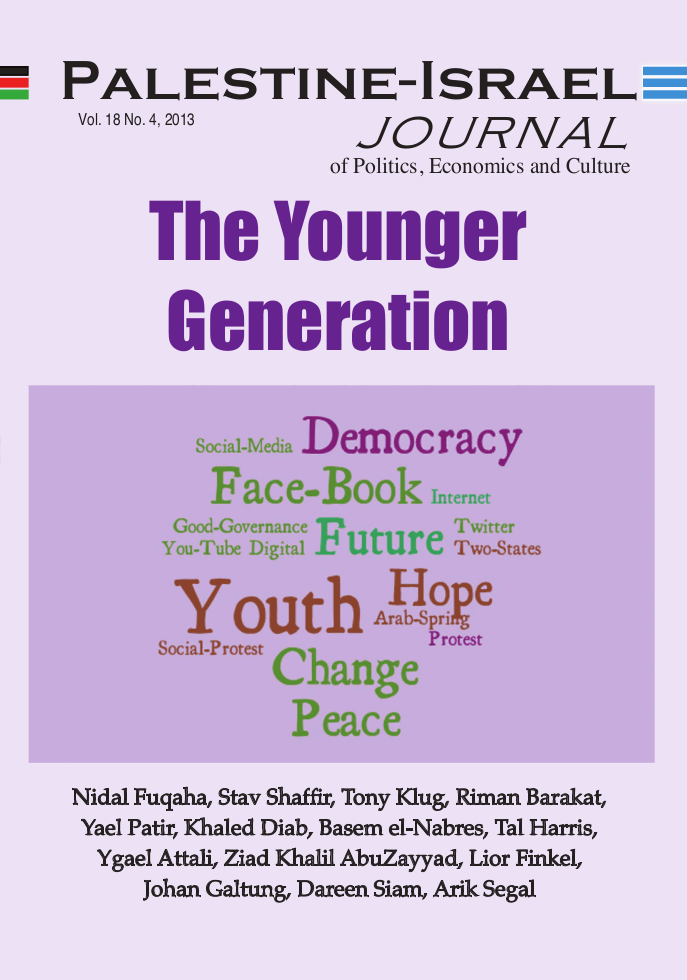There is no doubt that the future belongs to the younger generation, who could make a tremendous impact on the road to a better future if given the opportunity. They are the key to the future and will provide the future leadership for both Palestinian and Israeli societies. The younger generation on both sides of the Israeli-Palestinian conflict is a sensor on one hand and a mirror on the other. They are more sensitive to the conflict and feel its influence on the smallest details of their daily lives, and reflect, as a mirror, how they envisage this conflict and project it onto their attitudes and behavior.
As a result, young people in both communities are becoming more extreme in their positions or apathetic, due to a general lack of contact and knowledge of the other. This is due to the Separation Wall, the lack of progress toward a negotiated settlement, the absence of hope, frustration, despair, joblessness on the Palestinian side and growing extremism in both societies.
The question is whether the younger generation will be ignored and marginalized while their fate and destiny are determined by the Old Guard, or will take their future into their own hands and decide for themselves.
Is this possible, or do they still need the experience and wisdom of the older generation? How can we combine the best of both generations without allowing one to dominate the other? What lessons could we learn from the Arab Spring and its repercussions? What impact did the youth-led social protests in Israel have on the recent elections, and can they contribute to changing Israeli public opinion in favor of a compromise with the Palestinians?
This issue of the Palestine-Israel Journal will focus on the factors that influence the younger generation today, their hopes and visions, and the possibilities for uni-national and joint activity to promote an end to the occupation and a resolution of the conflict. It will also focus on the impact of the Arab Spring and the social protest movements on the younger generation. It features articles written both by members of the younger generation and by veteran experts and observers of the younger generation, in addition to an internal roundtable discussion, bringing together articulate and active members of the Palestinian and Israeli younger generations.
The contributions of the younger generation to this issue range from political analyses to poetry, showing how they feel about the situation and reality they are living in and how they aspire to change.

